Leading Women at the Intersection of Digital and Creative Industries: Success Stories and Exchanging Experiences
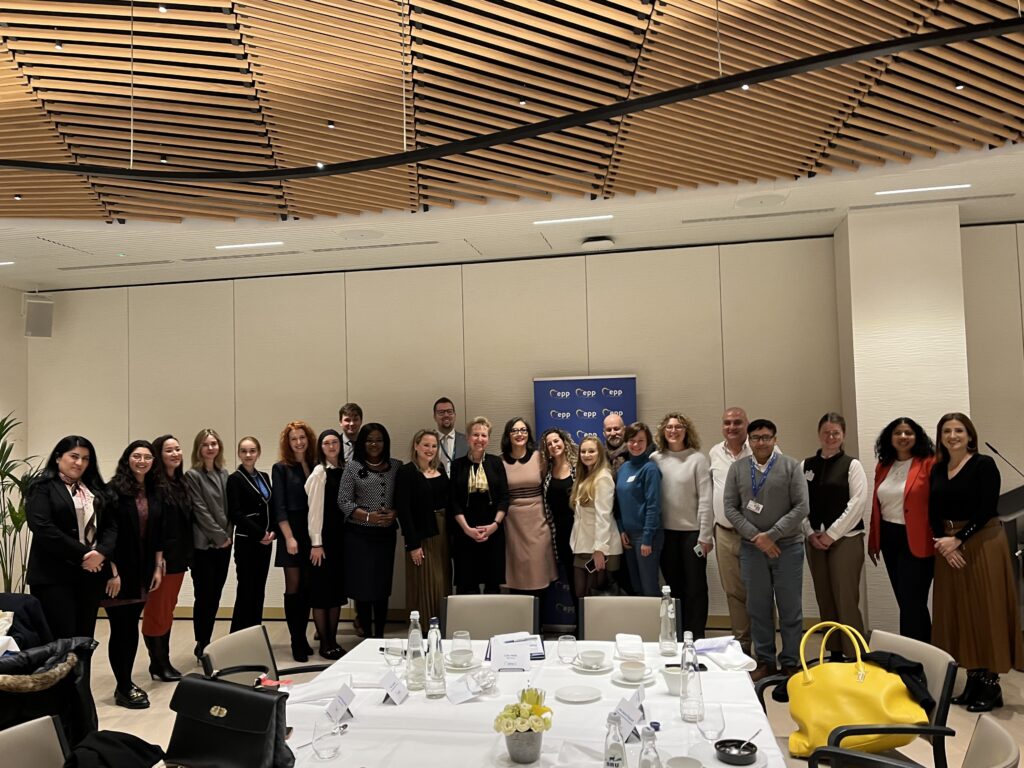
On the evening of Tuesday, March 5th, 2024, SME Europe of the EPP collaborated with the International Women’s Democracy Union (IWDU) to host a working dinner titled “Leading Women at the Intersection of Digital and Creative Industries: Success Stories and Exchanging Experiences.”
The discussion, moderated by Sevara Irgacheva, Director of Technology, Media, and Telecom Strategic Communications at FTI Consulting, featured distinguished experts including Anna Lauridsen, EMEA Privacy Lead at Cisco; Julie Jeanne Regnault, Secretary General of EFAD (European Film Agency Directors association); Hedwige Nuyens, CEO of the International Banking Federation and Chair of European Women on Board; along with Lilia Heitz, Head of Office of SME Europe; Ivan Legrady, Head of Office for MEP Ivan Stefanec; Louisa Atta-Agyemang, Co-Chair of the Democrat Union of Africa, IDU Vice Chairwoman, NPP Ghana; and Joelle Bou Abboud from the International Department of the Political Bureau of the Kataeb Party Lebanon.
In their welcoming remarks, Lilia Heitz and Ivan Legrady underscored the crucial need to persist in advocating for SMEs and promoting policies fostering entrepreneurial-friendly environment for men and women alike. They emphasized the imperative of cultivating an atmosphere that nurtures success stories, championing an approach characterized by reduced regulation and increased freedom.
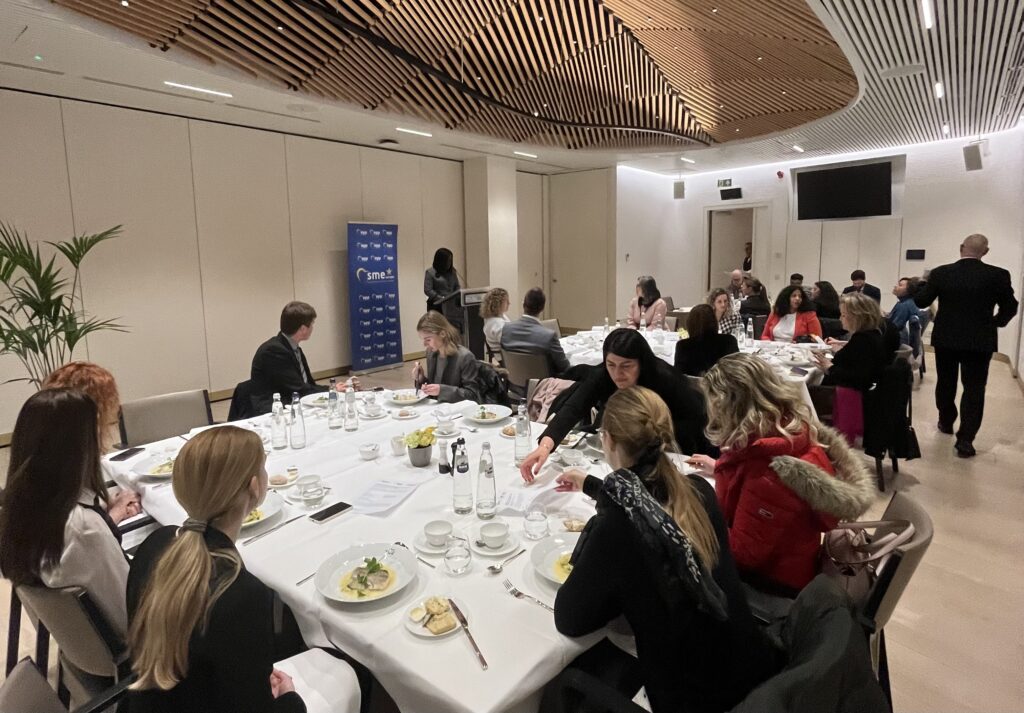
In her opening address, Louisa Atta-Agyemang noted the dynamic landscape of the creative economy, acknowledging its simultaneous offering of opportunities and challenges. She advocated for the implementation of policies aimed at providing women with more than just a secure and functional environment in which to express their creativity. Rather, she emphasized the necessity for initiatives that ensure women receive due recognition and equitable financial benefits from their contributions to the industry.
Sevara Irgacheva took the lead during the core portion of the discussion, guiding the conversation to delve into the intricacies of both the cultural and creative sectors, as well as the digital and tech sectors. Her moderation allowed the audience to explore the unique challenges and opportunities present in these domains, while also providing invaluable insights into the perspectives and experiences of women who are at the forefront of leadership within these industries.
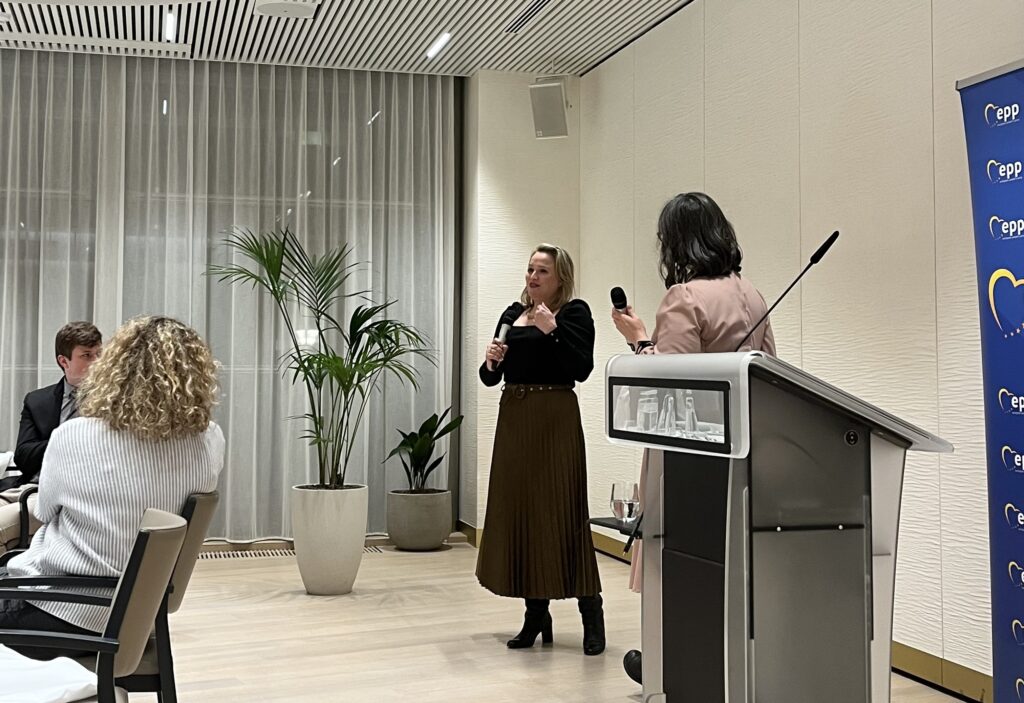
An intriguing aspect of Anna Lauridsen‘s role as EMEA Privacy Lead at Cisco is her ability to excel in a technology-driven company without possessing a technical background herself. Instead, she leverages her expertise to bridge the gap between engineers and privacy lawyers, aiding them in understanding the broader context of regulations. Anna’s example highlights the diverse skill set required for contemporary leadership roles, emphasizing the importance of a practical mindset and curiosity in navigating complex and evolving landscapes. Anna emphasized the burgeoning trend of AI within her field, which brings about a multitude of privacy concerns. In her leadership capacity, she focuses on identifying these privacy risks and plays a pivotal role in guiding engineers to develop solutions to address them effectively. Anna believes that education remains the primary tool for women to excel and explore their potential. She emphasizes the significance of policy initiatives aimed at supporting low-income families to ensure all children receive access to quality education.
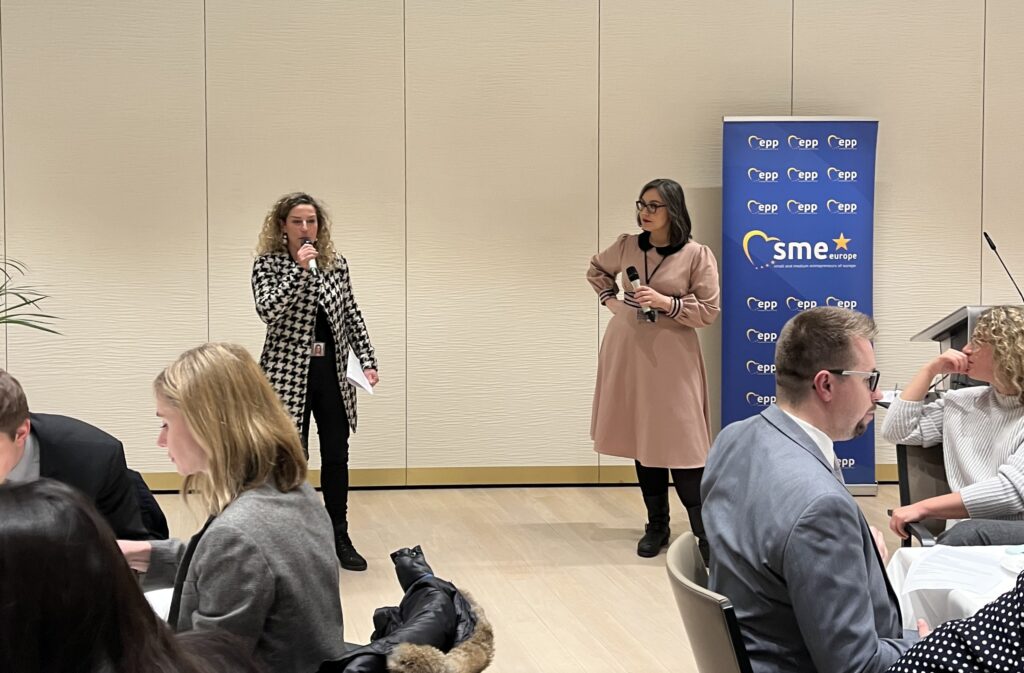
Julie Jeanne Regnault, Secretary General of European Film Agency Directors association (EFAD) serves as a representative for 37 public authorities across Europe, including film agencies, audio-visual centers, and institutes. She underscores the critical role of her sector in promoting cultural diversity, which is reflected in the variety of stories depicted on screen. However, given the strong connection between the film sector and cultural aspects in Europe, commercialization becomes more challenging, particularly for SMEs, which comprise the majority of producers in the industry. Despite a higher number of females studying creative arts subjects, a smaller proportion of women transition into creative professions post-graduation. In Europe, particularly in the audiovisual sector, gender balance remains elusive. Recent statistics from the European Audiovisual Observatory reveal that women account for only 28% in TV production and 25% in cinema. Julie Jeanne identifies this issue as being intertwined with the challenges women face in maintaining a work-life balance in this sector, as well as disparities in pay. To address these challenges, Julie Jeanne advocates for the implementation of initiatives inspired by successful practices already in place in countries like Sweden. These initiatives include measures to protect women working in the field, as well as the introduction of gender bonuses and maintaining quotas as incentives for gender promotion. While Julie Jeanne acknowledges that quotas alone cannot substitute for quality criteria in evaluations, she believes they play a crucial role in sending a clear political message and ensuring progress in the right direction.
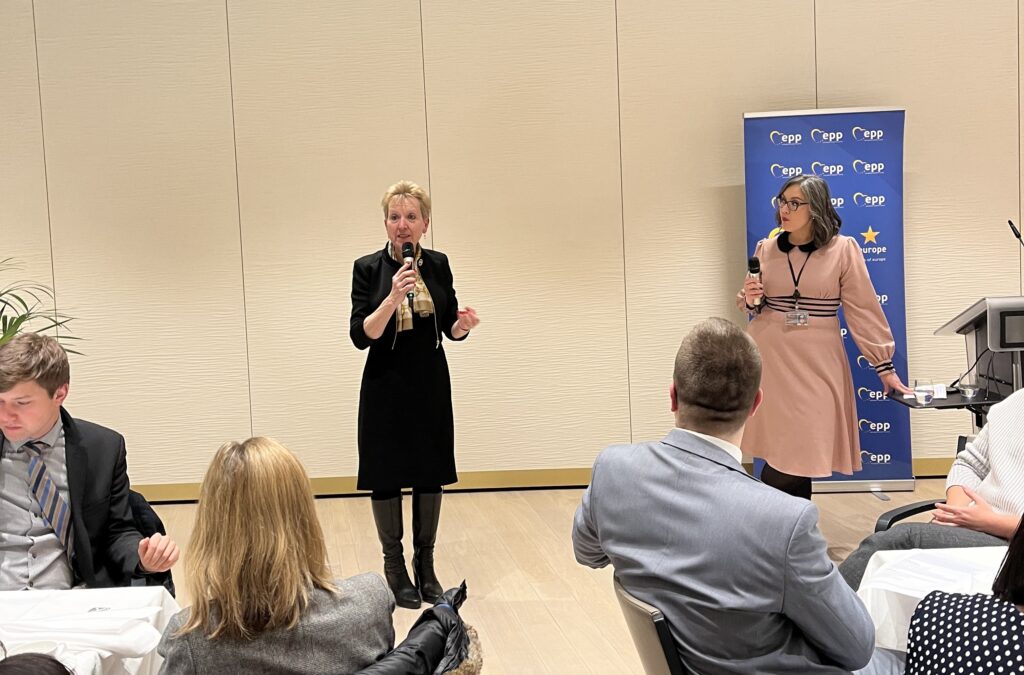
Hedwige Nuyens, is representing banking industry worldwide as CEO of the International Banking Federation and champions the increased representation of women on executive boards as Chair of European Women on Board. She sees the main change for women in the fact that they attain higher levels of education than men. “Women are overtrained but undersponsored”, she remarks. Still, more can be done on financial education for women. Despite the prevalence of women entrepreneurs in developing countries and the perception of loans to women as less risky, they continue to encounter barriers in accessing venture capital. Financial access remains skewed along gender lines. Hedwige firmly believes in the transformative potential of technology, particularly when it is bolstered by diversity of users. “If you want more women in STEM, forget about talking STEM. Focus on the difference it can make,” she suggests. Hedwige stresses the importance of achieving parity for men, just as it’s currently pursued for women. She believes the key to achieving this lies in ensuring transparency in the selection process.
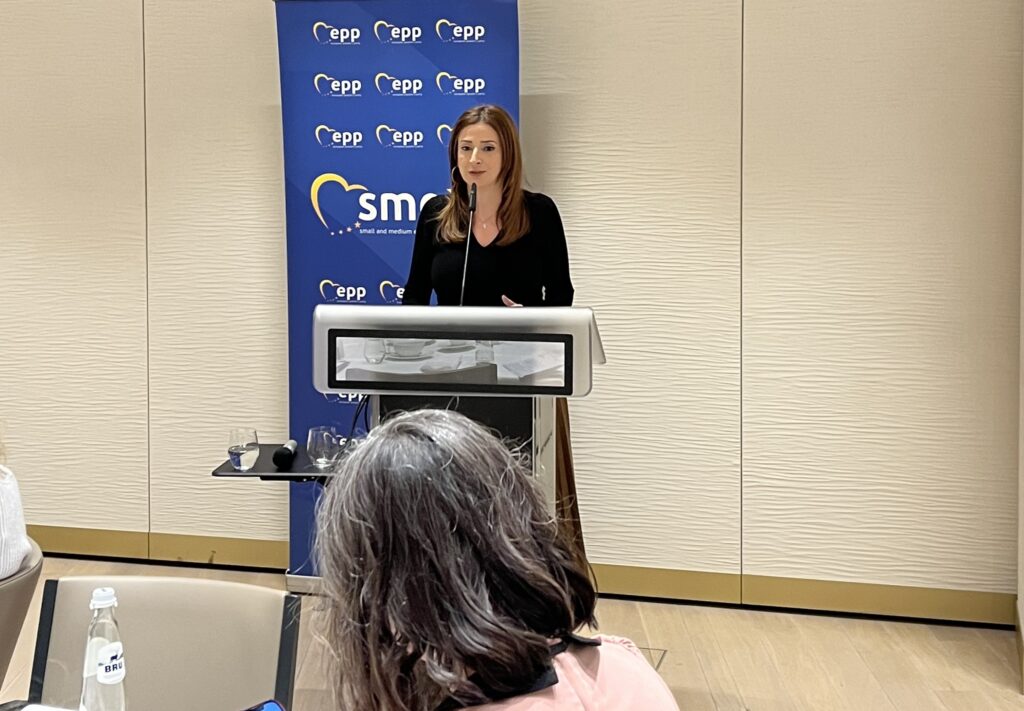
In her concluding statement, Joelle Bou Abboud from the International Department of the Political Bureau of the Kataeb Party Lebanon, emphasized the necessity of creating conditions where women no longer feel compelled to choose between family and career. She also highlighted the significance of policymakers empowering women within political parties, as it sends a powerful message to society at large, catalyzing the change needed for more equality and diversity.

